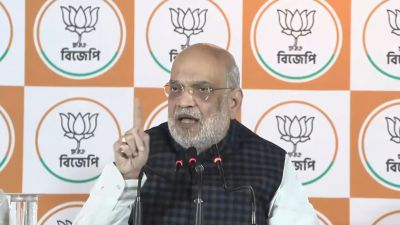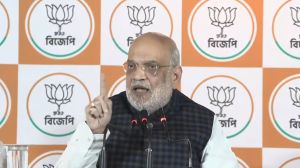Unshared waters
It is no surprise at all that the Union government has been forced to beat a hasty retreat on its repeatedly asserted resolve to formulate...

It is no surprise at all that the Union government has been forced to beat a hasty retreat on its repeatedly asserted resolve to formulate a national water policy. It took only a few hours at the fourth meeting of the National Water Resources Council in New Delhi last week for the states to reduce thepolicy to an issue of federalism and reject it on that ground alone. The response was predictable indeed in the light of the country8217;s experience of long years, particularly in relation to inter-state riparian disputes. The proposal for formation of a Central River Basins Authority as part of the envisaged policy could have found no acceptance, when even bodies set up to facilitate inter-state water-sharing have been unable to function effectively. The latest example is the Cauvery Water Authority, which has spelt no real solution to the long-running dispute between Tamil Nadu and Karnataka. No such mechanism has worked, either, in similar other disputes made the more intractable by irrigation projects, including the construction of dams. The proposal for guidelines on sharing of river waters as part of the promised policy had no great prospect of all-round acceptance, given that even the self-evident need for some restriction in this regard on upper-riparian states has thus far remained beyond explicitrecognition by a cynically circumspect New Delhi. Predictable as the rejection of the idea of a national policy on a vital natural resource was, the Centre would have done better to present it in a more acceptable manner.
This does not mean, as it is all too often presumed, that the Centre should have made it more of a political exercise. Experience makes it clear that there is little or no political leeway for the Centre in inter-state water imbroglios. There is none for the simple reason that none of the political parties, including the avowedly all-India ones, is ready to take a national view of such matters. The Centre may well muddy the waters further by appointing itself an arbitrator in the disputes. What it can present more profitably is a positive case for inter-state cooperation in the place of these endlessly recurring conflicts. The states and the country need to be presented, of course, the larger picture of the wonder that integrated development of water resources will spell for India and, as some studies show, even the subcontinent. Even more important in the immediate context will it be to show that inter-state exercises on the subject can be far more creative than a division of scarce, disputed resource.Changed crop patterns on either side, it has been suggested for instance, can help to produce a Cauvery solution without tears and tribunals.
Courageously innovative initiatives for groundwater conservation in some drought-prone district, too, are illustrative of a positive and practical water policy that is assured of popular support. The Centre can best promote such initiatives, not by offering a Central groundwater quot;authorityquot; as it has unsuccessfully sought to do, but by pledging unstinted assistance to states for the objective. A national water policy is an idea that must be persisted with. It is an idea whose time will come as soon as both the states and the Centre begin to see it in more positive than political terms.
- 01
- 02
- 03
- 04
- 05































